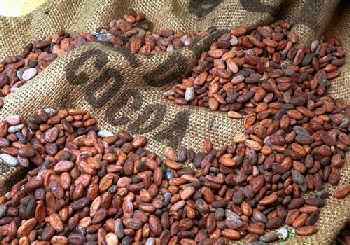Global warming causes Coffee Tree Rust
Last week, coffee plantations in Nicaragua had just finished harvesting with a harvester, and now farmers are lying on the ground picking up fallen coffee beans like chickens pecking at rice, which they will have to live on in the next two months. Coffee production has fallen by 50% this winter, with hunger and debt weighing on 2 million central American coffee workers and small farmers. Fruit and meat have become rare luxuries. Some people even want to see if they can catch some fish from the lake, because at least it costs no money.

Candy de Rosa, who owns a small farm, says she doesn't even have the money to buy a new pair of shoes this year, and coffee trees infected with rust can no longer produce coffee beans. Many farmers are unable to cut down sick coffee trees and plant new ones.
This is the first time many farmers have seen the rust. At first, the green leaves turn yellow, and then there are small holes. The infection spread to maturing coffee beans, turning them from bright red to gray. Coffee trees need to be carefully pruned, treated with chemotherapy, and will not be able to return to their original yield until a few years later.
Rust cannot survive below 10 degrees Celsius. It is believed that the climate has become hotter and wetter in recent years, so rust and other problems have seriously affected global coffee production, such as declining rivers. The Nicaraguan government is so worried that 80% of coffee plantations will not be able to grow coffee by 2050 because of reduced precipitation and rising temperatures.
Although the temperature has risen by only 2-2.5 degrees Celsius, there has been a sharp decline in the amount of land suitable for growing coffee in many places, according to a new draft report by the Intergovernmental Panel on Climate change. The committee believes that the decline in coffee production in various countries is mainly due to climate warming. At the end of February, Brazilian coffee futures prices rose 70% because of coffee shortages.
But the price rise came too late for farmers, after coffee prices remained at an all-time low for two years. Last year the harvest of coffee was the worst and the price was the lowest.
Starbucks even visited the White House to warn that without a plan to deal with climate change, the global coffee supply will be threatened.
The International Coffee Organization and a leading global merchandise trading company even said in a report that coffee supply falls short of demand this year, creating a shortfall of 300 million kilograms, equivalent to two years of consumption in the UK.
Important Notice :
前街咖啡 FrontStreet Coffee has moved to new addredd:
FrontStreet Coffee Address: 315,Donghua East Road,GuangZhou
Tel:020 38364473
- Prev

The United Nations reports that climate change will lead to higher coffee prices
A recent United Nations report in Yokohama, Japan, says climate change will reduce coffee production, leading to higher prices.
- Next

A new appearance of Umilk coffee machine
Umilk has an one-stop optimal coffee brewing and fresh milk brewing solution, which brings mellow perfect coffee and smooth and rich foam to Chinese coffee lovers who are keen on milk coffee. It can meet the application of hot and cold milk and become a big surprise, making coffee time more lively and interesting, and being able to devote themselves to it at the turn of the four seasons.
Related
- What is the difference between Indonesian Sumatra Mantinin coffee and gold Mantinin? How to distinguish between real and fake golden Mantelin coffee?
- What does bypass mean in coffee? Why can hand-brewed coffee and water make it better?
- Unexpected! Ruixing Telunsu lattes use a smoothie machine to foam milk?!
- % Arabia's first store in Henan opens into the village?! Netizen: Thought it was P's
- Does an authentic standard mocha coffee recipe use chocolate sauce or powder? Mocha Latte/Dirty Coffee/Salty Mocha Coffee Recipe Share!
- What is the difference between Vietnam egg coffee and Norway egg coffee? Hand-brewed single product coffee filter paper filter cloth filter flat solution!
- What is the difference between sun-cured and honey-treated coffee? What are the differences in the flavor characteristics of sun-honey coffee?
- How to make Italian latte! How much milk does a standard latte use/what should the ratio of coffee to milk be?
- How to make butter American/butter latte/butter Dirty coffee? Is hand-brewed coffee good with butter?
- Is Dirty the cold version of Australian White? What is the difference between dirty coffee/decent coffee and Australian white espresso?

